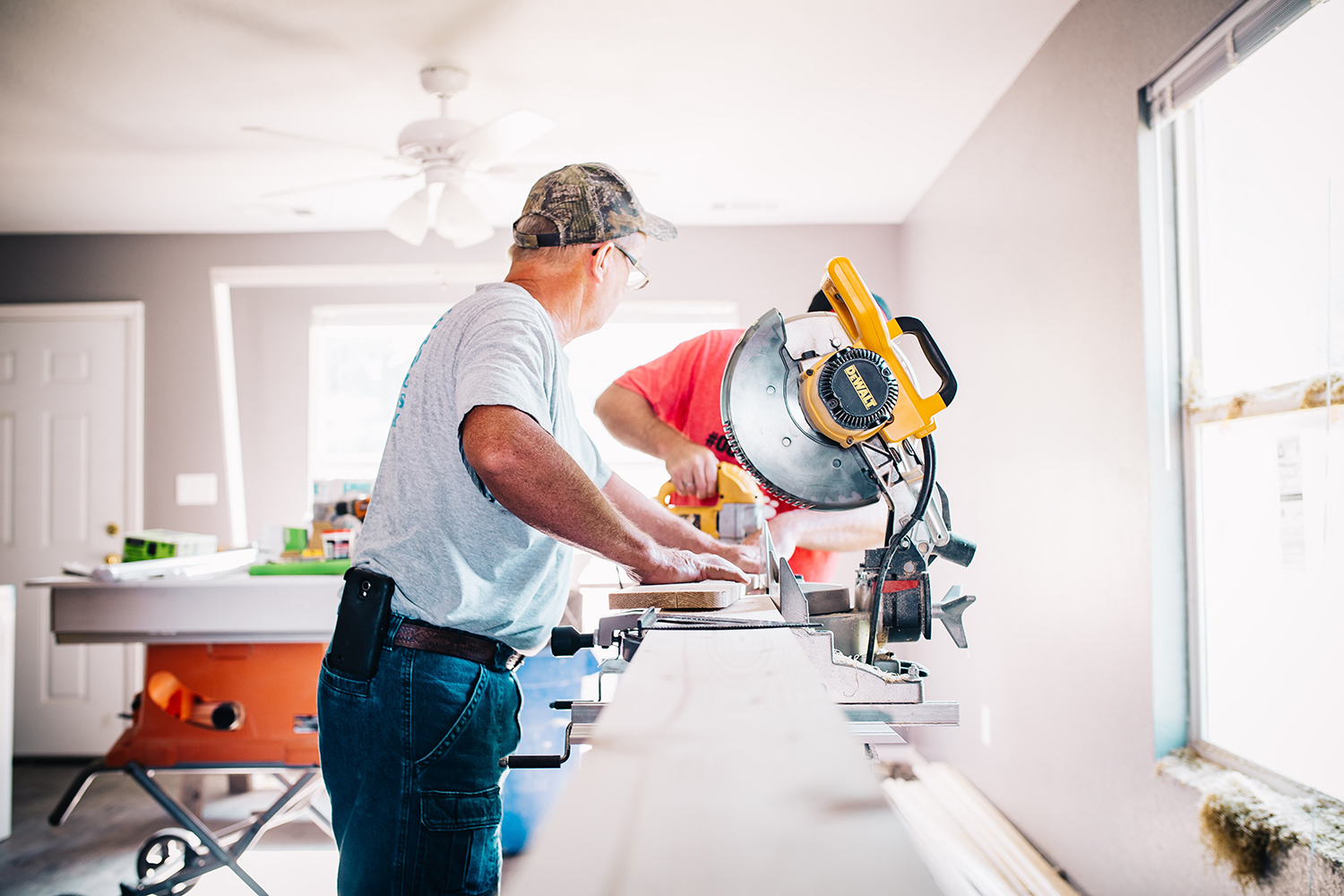Home Repair and Renovation Grants: How to Qualify owning a home comes with its share of responsibilities, and one of the most pressing challenges for homeowners is keeping their property in good condition. Home repairs and renovations can be expensive, but fortunately, there are programs designed to ease the financial burden. Grants for home repairs and renovations are a powerful resource for homeowners seeking to maintain, improve, or restore their homes. These grants can make a significant difference by covering the cost of essential repairs or renovations that might otherwise be unaffordable.
If you’re wondering how to qualify for these grants, this comprehensive guide will walk you through the process, provide insights into various grant options, and help you navigate the qualifications. From government assistance programs to nonprofit initiatives, understanding your eligibility is the first step in securing financial help for your home improvement projects.

What Are Grants for Home Repairs and Renovations?
Grants for home repairs and renovations are financial awards given by government agencies, nonprofit organizations, or private institutions to help homeowners make improvements to their properties. Unlike loans, grants do not need to be repaid, making them an invaluable source of funding for homeowners in need.
These grants can cover a wide range of home repairs and renovations, including:
- Structural repairs, such as fixing foundations or roofs.
- Energy efficiency upgrades, like installing insulation or replacing windows.
- Safety modifications, such as adding ramps or grab bars for accessibility.
- General renovations, including kitchen and bathroom updates.
While the scope of these grants can vary, the goal remains the same: to assist homeowners in maintaining or improving their living conditions without the financial burden of high-interest loans or out-of-pocket expenses.
Why Are Grants for Home Repairs and Renovations Offered?
Several factors drive the availability of grants for home repairs and renovations. Governments and organizations understand that a well-maintained home is crucial for the health and safety of families, as well as the overall stability of communities. Here are some reasons why these grants are offered:
- Health and Safety: Many homes, especially older ones, pose health risks due to poor structural integrity, outdated electrical systems, or mold and pest infestations. Grants help eliminate these hazards and ensure safe living conditions.
- Community Development: By funding home repairs and renovations, local and federal governments aim to improve neighborhoods, maintain property values, and reduce blight. This is particularly important in low-income or distressed areas.
- Energy Efficiency: As the world continues to focus on sustainability, grants aimed at energy efficiency upgrades help homeowners reduce their carbon footprint while lowering their utility bills.
- Accessibility: Grants also focus on making homes more accessible for elderly or disabled individuals. This can involve adding wheelchair ramps, widening doorways, or installing bathroom safety features.
Types of Grants for Home Repairs and Renovations
When considering grants for home repairs and renovations, it’s important to understand the different types of funding options available. Each grant comes with its own eligibility requirements, purpose, and application process.
Federal Grants for Home Repairs and Renovations
Federal grants are often the most well-known and accessible options for homeowners. These programs are typically aimed at low-income households, seniors, or individuals with disabilities.
- U.S. Department of Agriculture (USDA) Rural Development Grants: The USDA offers various grants to rural homeowners for repairs that improve safety and sanitation. The Single Family Housing Repair Loans and Grants Program helps low-income, rural homeowners, particularly seniors, make necessary repairs to their homes.
- Department of Housing and Urban Development (HUD) Grants: HUD provides funding through the Community Development Block Grant (CDBG) program, which can be used for home repairs, especially in low-income neighborhoods. These grants are often distributed through local governments or nonprofit organizations.
- The Low-Income Energy Efficiency Program: Also known as the Weatherization Assistance Program (WAP), this program helps eligible low-income homeowners and renters reduce energy costs by improving the energy efficiency of their homes. This can include insulation, sealing leaks, and replacing old appliances with energy-efficient models.
- Veterans Affairs (VA) Grants: For eligible veterans, the Specially Adapted Housing (SAH) Grant and Special Housing Adaptation (SHA) Grant can assist in making home modifications for accessibility or safety, such as adding wheelchair ramps or adapting bathrooms.
State and Local Grants for Home Repairs and Renovations
In addition to federal programs, many states, cities, and counties offer their own grants for home repairs and renovations. These programs often focus on specific regional needs, such as preserving historical buildings, improving energy efficiency, or addressing urban blight.
- State Housing Finance Agencies: Many states have housing finance agencies that administer grants and loans for home repairs. These programs may focus on improving safety, maintaining affordable housing, or providing energy-efficient upgrades.
- Local Housing Authorities: Local governments often have community development funds that can be used for home repairs and renovations. These grants are typically available for low-income homeowners in specific cities or counties.
- Local Nonprofit Organizations: Nonprofits, such as Habitat for Humanity and Rebuilding Together, offer home repair grants and volunteer labor for people in need. These programs are often targeted at specific groups, such as veterans, seniors, or people with disabilities.
Nonprofit and Private Organization Grants
Several private organizations and charities also offer grants for home repairs and renovations. These programs are often focused on specific needs, such as improving accessibility for disabled individuals or assisting elderly homeowners who may not be able to afford repairs.
- Habitat for Humanity: Known for its work in building affordable homes, Habitat for Humanity also offers home repair programs for low-income families. These repairs typically focus on improving safety, energy efficiency, and overall livability.
- Rebuilding Together: This nonprofit organization offers home repairs for low-income individuals, especially seniors and veterans. The organization partners with volunteers to provide labor for free or at a reduced cost.
- The National Trust for Historic Preservation: If you live in a historic home, the National Trust provides grants to help preserve and restore your property. These grants are designed to maintain the architectural integrity and historical significance of older buildings.
How to Qualify for Grants for Home Repairs and Renovations
Qualifying for grants for home repairs and renovations requires meeting specific eligibility criteria. These criteria vary depending on the type of grant and the agency or organization offering it, but there are common factors to consider.
1. Income Level
Many grants for home repairs and renovations are targeted at low- to moderate-income households. In order to qualify for these grants, homeowners may need to meet income limits set by the funding agency. For instance, federal programs like those offered by the USDA often require applicants to fall within a specific income bracket relative to the median income of their county.
2. Age or Disability
Certain grants are designed to assist senior citizens, veterans, or people with disabilities. For example, the VA’s Special Housing Adaptation Grant is available to veterans who have a permanent service-connected disability. Similarly, some state and local programs prioritize seniors who are in need of home repairs but may not have the means to afford them.
3. Home Ownership and Residency
To qualify for most grants for home repairs and renovations, you must be the owner of the property in need of repairs. Additionally, some programs require that the home be your primary residence. Homeowners with second homes or rental properties may not be eligible for certain grants.
4. The Condition of the Home
Grant programs are often designed to address homes that are in poor condition and pose safety or health risks. If your home is deemed unsafe or in dire need of repairs, you may have a better chance of qualifying for assistance. Some programs, like those from the USDA or HUD, may require an inspection of the property before granting funds.
5. Project Type
Not all home repairs are eligible for grants. For example, some grants are specifically for energy-efficient upgrades, while others focus on making homes accessible for people with disabilities. The type of repairs or renovations you need will play a role in determining which grants you qualify for.
6. Location
Eligibility can also depend on where you live. Rural areas, low-income neighborhoods, and areas with high levels of historical buildings may have specialized grant programs. Additionally, some local governments or nonprofits only offer grants to residents within a certain geographic region.
Steps to Apply for Grants for Home Repairs and Renovations
The application process for grants for home repairs and renovations typically involves several steps. While the exact procedure may vary depending on the program, the following are common stages in the application process:
1. Research Available Grants
Start by researching the grants available in your area. Federal and state programs often have online portals where you can find eligibility criteria and application guidelines. Be sure to check with local housing authorities, nonprofits, and private organizations as well.
2. Gather Required Documentation
When applying for a grant, you will likely need to provide documentation to prove your eligibility. This can include income verification, proof of homeownership, identification, and possibly a home inspection report.
3. Complete the Application
Applications for home repair grants can be lengthy, so it’s important to provide accurate and complete information. Some programs require you to submit a detailed proposal of the repairs needed, including estimates of costs.
4. Wait for Approval
After submitting your application, you may need to wait for a decision. Some programs have waiting lists due to limited funding, so patience is key. Be prepared to provide additional information if requested.
5. Use the Funds Wisely
Once approved for a grant, it’s essential to use the funds for the purpose outlined in your application. Many grant programs will require you to submit receipts or progress reports to ensure the work is being completed as intended.
Grants for home repairs and renovations offer a lifeline to homeowners who need assistance with essential home repairs and improvements. By understanding the different types of grants available, the eligibility requirements, and the application process, homeowners can access the financial help they need to maintain and improve their properties. Whether through federal, state, or nonprofit programs, these grants are invaluable tools for ensuring safe, livable, and energy-efficient homes. If you’re considering a home repair project, explore your options for grants, and take advantage of the support available to improve your living space.







